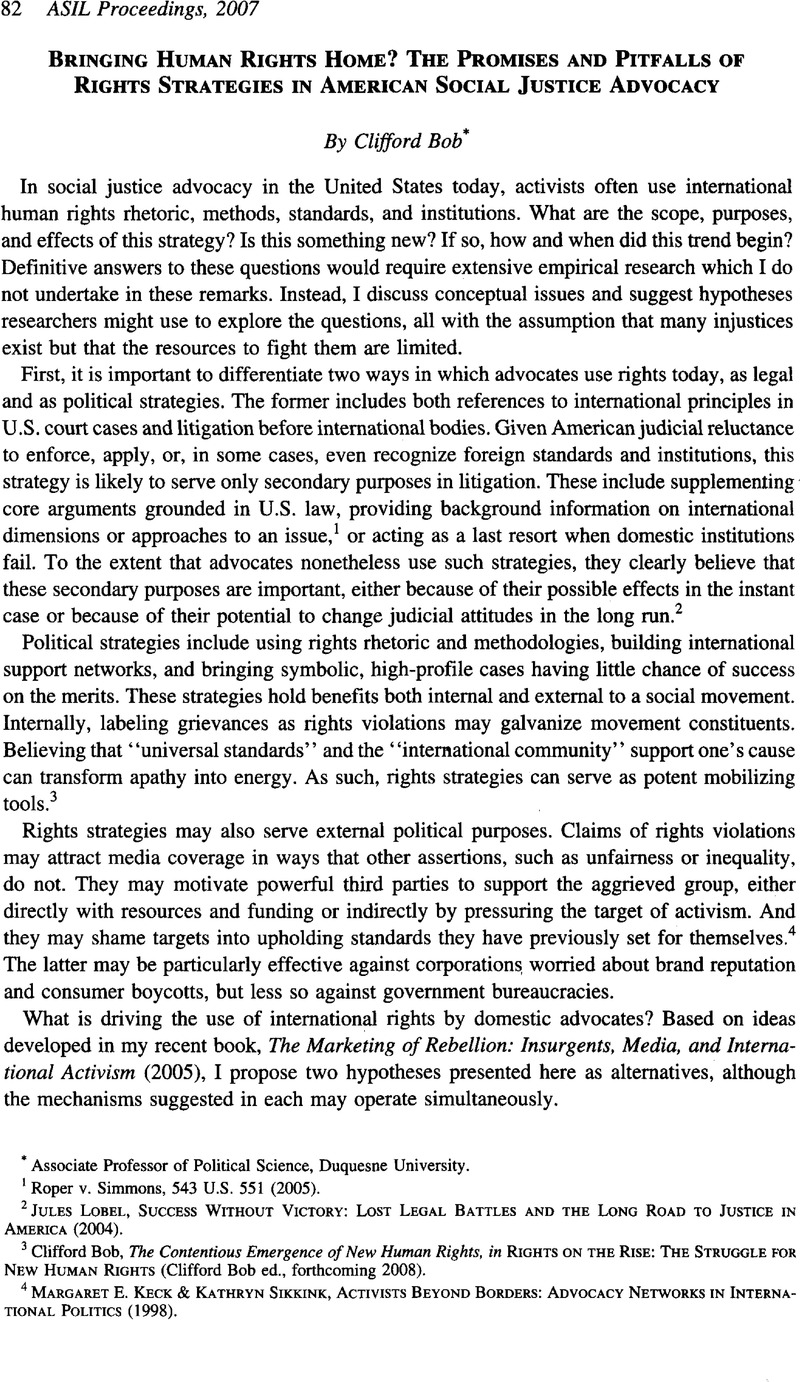Published online by Cambridge University Press: 28 February 2017

1 Roper v. Simmons, 543 U.S. 551 (2005).
2 Lobel, Jules, Success Without Victory: Lost Legal Battles and the Long Road to Justice in America (2004)Google Scholar.
3 Bob, Clifford, The Contentious Emergence of New Human Rights, in Rights on the Rise: The Struggle for New Human Rights (Bob, Clifford ed., forthcoming 2008)Google Scholar.
4 Margaret E. Keck & Kathryn Sikkink, Activists Beyond Borders: Advocacy Networks in International Politics (1998).
5 See, e.g., Ford Foundation, Close to Home: Case Studies of Human Rights Work in the United States, available at <http://www.fordfound.org/publications/recent_articles/docs/close_to_home/toc_intro.pdf>; Columbia Law School, Bringing Human Rights Home Project, available at <http://www.law.columbia.edu/center_program/human_rights/research_schola/research/Bhrh>. See also Is the U.S. Ready for Human Rights?, Yes! Magazine, Spr. 2007, at 17 (special theme issue); Alan Jenkins & Larry Cox, Bringing Human Rights Home, The Nation, June 27, 2005, at 27.
6 Sara Bullard, The United States: Working on the Front Lines, Ford Foundation Report, Fall 1998, available at <http://fordfound.org/publications/ff_report/view_ff_report_detail.cfm?report_index=177> (describing HRUSA’s foundation in January 1997, its four national partners (Amnesty International USA Educators’ Network, Center for Human Rights Education of Atlanta, Human Rights Center/Minnesota Advocates for Human Rights, and Street Law of Washington, D.C.), and its pilot projects in Minneapolis, St. Louis, San Antonio, and Atlanta, which “organize public education and community activities on human rights issues”).
7 Mary Ann Glendon, Rights Talk: The Impoverishment of Political Discourse (1991).
8 Jed Rubenfeld, The Two World Orders, Wilson Q., Autumn 2003, at 22.
9 James B. Jacobs & Kimberly Potter, Hate Crimes: Criminal Law & Identity Politics (1998).
10 For analysis of National Rifle Association opposition to international gun control, see Clifford Bob, Conservative Forces, Communications, and Global Civil Society: Toward Conflictive Democracy, in Global Civil Society 2007/8: Communicative Power and Democracy (Martin Albrow, Helmut Anheier, Marlies Glasius, Monroe Price, & Mary Kaldor eds., 2007, at 198).